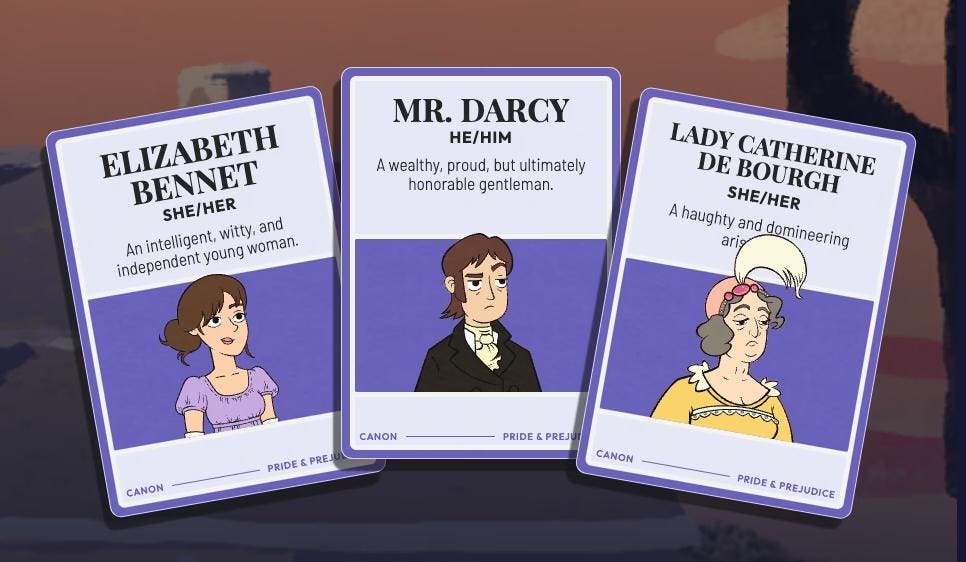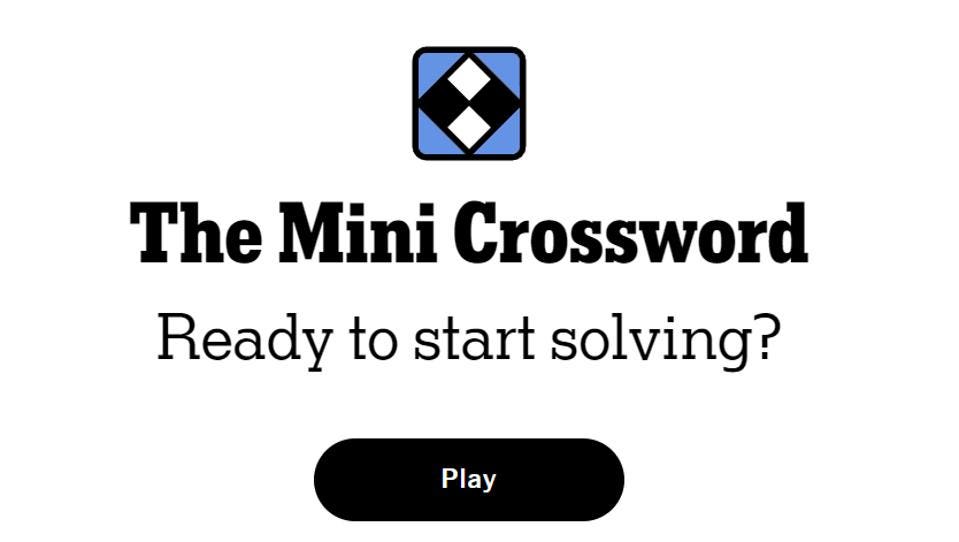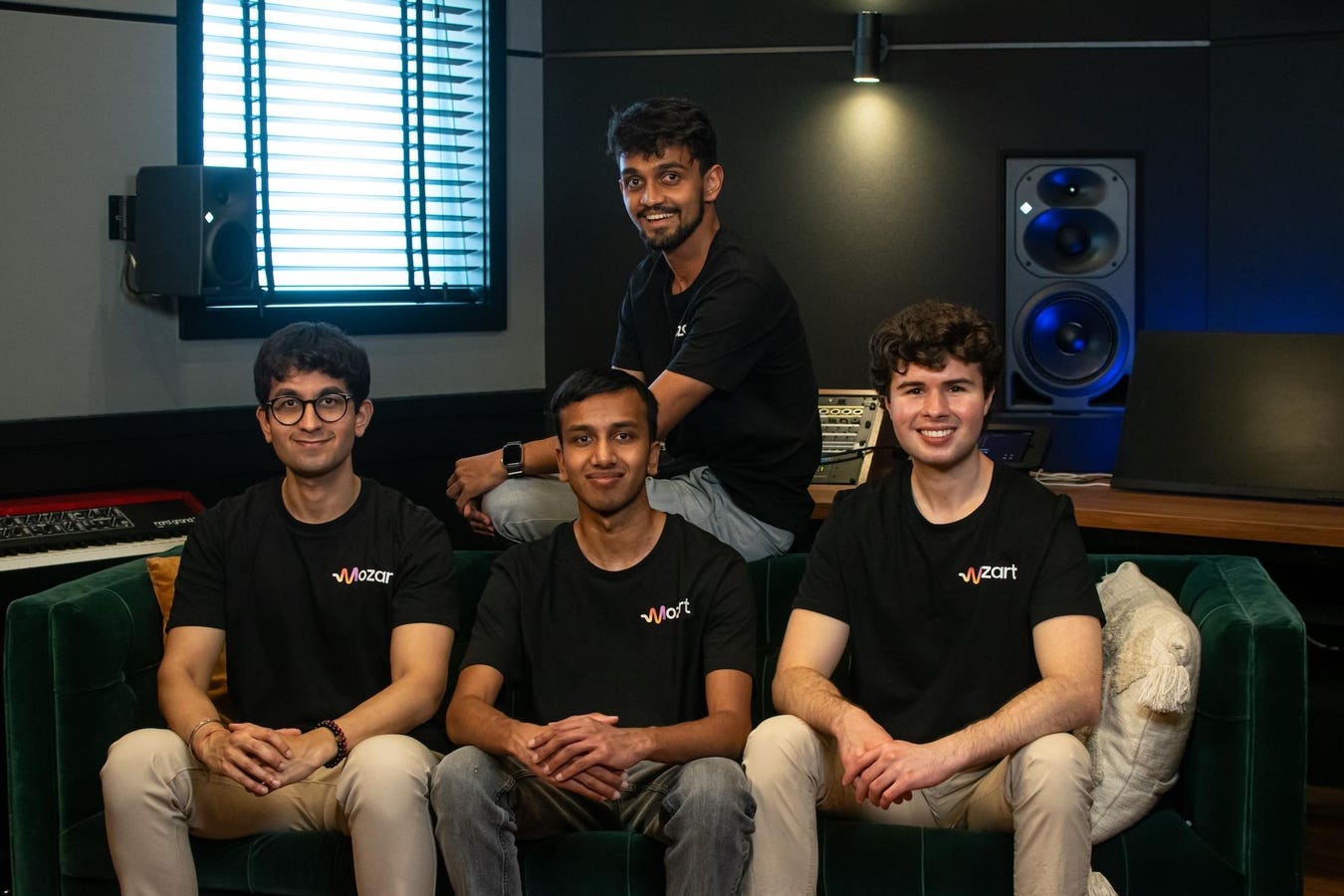Hidden Door, a New York–based startup founded by Hilary Mason and Matt Brandwein, is building a platform for fans to create and share interactive stories inside licensed fictional worlds. The company raised a $2 million pre-seed round in 2022 led by Makers Fund, with participation from Northzone, Betaworks, and others, including Roblox CTO Dan Sturman.
Mason is a well-known figure in technology circles, having served as chief scientist at bitly before founding the machine learning research firm Fast Forward Labs, later acquired by Cloudera. She has advised companies and government agencies on AI strategy and is a frequent speaker on data science. Brandwein’s background spans media, education, and games, including senior product roles at PBS and educational game studio BrainPOP. At Hidden Door, she leads technology and he oversees product, bringing together their experience in AI, storytelling, and audience engagement.
Hidden Door works directly with authors, publishers, and studios to license IP, then adapts it into a structured, rules-based environment where fans can create characters and narratives that operate within the logic of the original work. “We are very intentionally and deliberately working with the authors,” says Brandwein. “They are licensing the works, and we are making contractual commitments to be true to the world, sharing information about how fans are playing.” Alongside licensed content, the platform also draws from public-domain works.
“Pride and Preducice” is one of Hidden Door’s popular titles.
Hidden Door
Mason says the aim is to give fans more ways to engage while creating a new revenue stream for rights holders. “Hidden Door is the place for our fans to play within the realms of their favorite fictional worlds,” she says. “We’re building a home for fans of books, films and shows to socialize, obsess over and remix their favorite storylines.”
Play Puzzles & Games on Forbes
Current offerings include Pride and Prejudice and The Wizard of Oz from the public domain, as well as licensed properties like The Crow from Pressman Films, titles from romance publisher 831 Stories, and science fiction from authors Alan Dean Foster, Ramez Naam, and Charles Stross. Each world is adapted with input from the IP holder, who decides where the player enters the narrative, which characters appear, and which plotlines are emphasized.
Co-founder and CEO, Hilary Mason
Hidden Door
For partners, the onboarding process is quick. “Often it’s just a few hours to define the parameters of their world,” Mason says. Hidden Door also provides analytics on how fans interact with stories, giving creators insight into audience preferences. “Authors and publishers gain a direct revenue stream while discovering exactly how fans want to engage with their worlds, all while maintaining complete creative control.”
Revenue will come from a credit system modeled on Audible. Players can explore each world for free up to a set number of stories, then use credits to unlock unlimited play. Credits can also be used to access and remix other players’ creations, with revenue shared back to the original IP holder.
AI replaces the game master.
Hidden Door
The licensing approach sets Hidden Door apart from other AI-assisted storytelling tools. The company does not train models on source material. Instead, the team builds a structured representation of each world, defining tropes, plot beats, characters, and rules. All art is hand-drawn by an in-house team led by art director Megan Carlsen. “It is much easier to frankly just steal and not ask permission,” says Brandwein. “We don’t think that’s the right way to do this. We don’t think that’s what the fans want. We don’t think that’s what the creators want.”
Mason and Brandwein position Hidden Door at “the intersection of tabletop role-playing, fanfic communities, and video games,” combining licensed storytelling with the structure and consistency fans expect from role-playing games. Early partners see the platform as a safe way to extend their stories. “Hidden Door is a new way to expand a story without diluting it,” says Sam Pressman, CEO of Pressman Films. “It creates a lasting dialogue between the original vision and the audience’s imagination.” Erica Cerulo, co-founder of 831 Stories, calls it “a safe, beautifully designed playground” for readers to explore alternate timelines. Foster says it is “like having a thousand parallel universes of your story running at once, and you get to peek into every single one.”
Character creation like a role playing dame.
Hidden Door
Mason describes the audience as people for whom media is part of their social life. “Most of our players are people who talk about books and shows the way other people talk about sports,” she says. Stories and cards can be shared on Discord, Reddit, and BookTok, where fans compare plotlines and character arcs.
As the platform expands its roster of worlds ahead of launch, Hidden Door is aiming to build a network where fans can interact with beloved stories and creators can see their worlds grow in the hands of engaged audiences. It’s a model designed to reward both sides — and one that suggests a richer, more collaborative future for storytelling.








